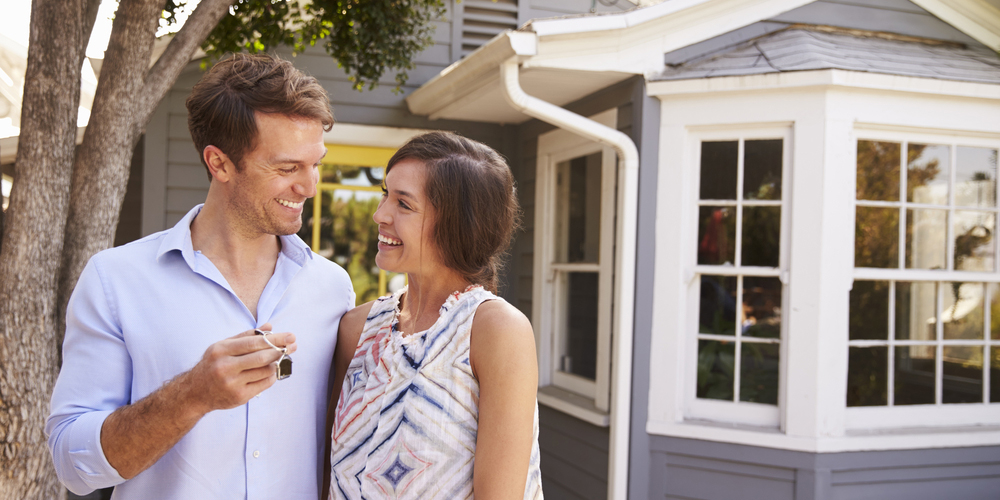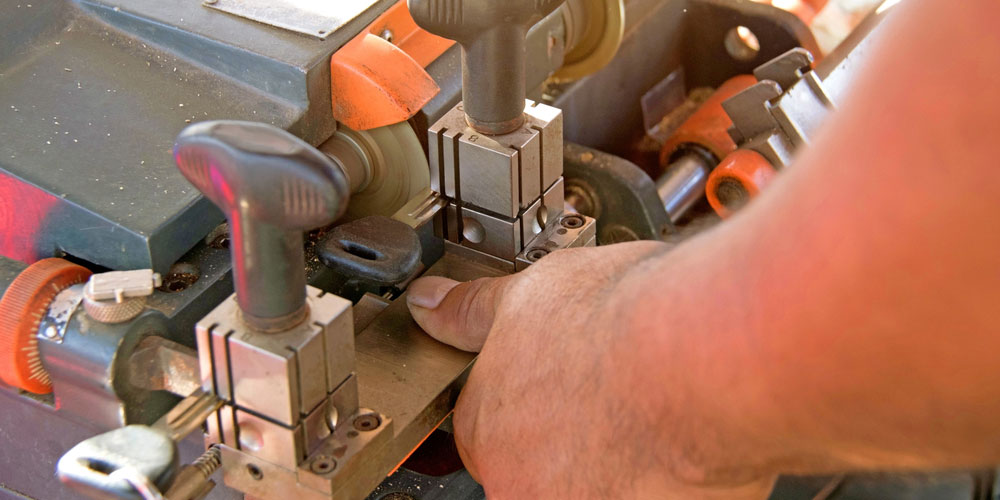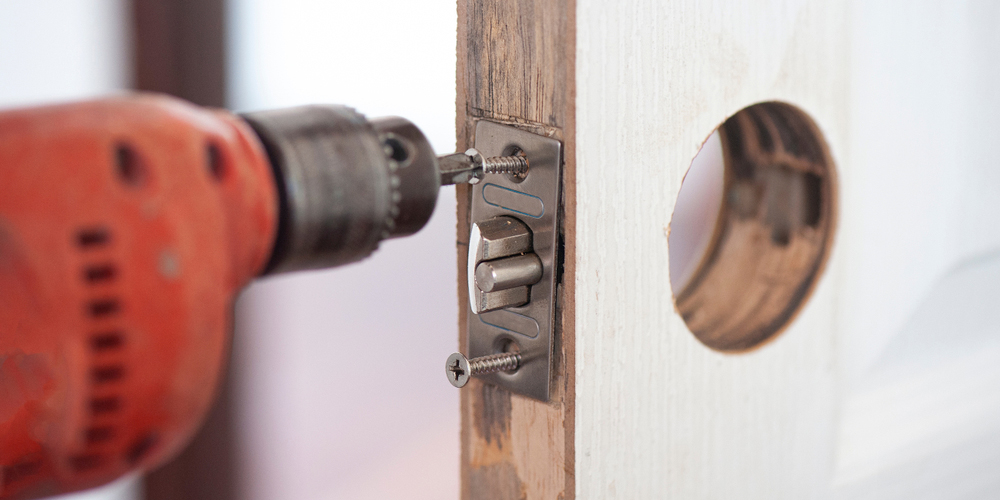Lock Blog
A resource for consumers, locksmiths, and security professionals
A resource for consumers, locksmiths, and security professionals

Changing locks on a new house is an essential step in the process of moving in. When a home is being sold, keys are going to be given to realtors and perhaps even building contractors. With an unknown amount of key duplicates out in the world, the only way to get security and peace of mind is to get new locks for the home. And in the case of privacy locks or any locks not used for security, you need to make sure that they are working properly and that you have a key.
If you look into your options, you may even find that changing locks on your new house isn’t what you need. Perhaps a simple lock repair will remedy your stuck bathroom lock. Maybe a lock only needs to be rekeyed for you to address the security concerns. Make sure you are using the best locks for your needs with a service that assures everything is installed and functioning properly. And know that you should change locks when you move into a new home.
Overview of new home lock change considerations:
You have just purchased a new house, which is a tremendous financial investment and an investment in your future. You do not want to cut corners on protecting your new home, but you also do not want to pay more money than you need to. There are a few basic things that play into the cost of changing locks such as the lock changing method, cost of hardware, labor to install the lock, and the number of new locks for the home.
If you need professional assistance with a new home lock change, make sure to consult the complete guide to locksmith prices for insight into those additional costs. The price of the locks themselves will vary widely based on the materials and technology used in the lock. The general rule is, the higher the cost, the higher the security. The main exception to cost equating to security is in the case of smart locks vs traditional locks, where you are paying a premium for convenience and not security.
The price of changing locks on a new house:
If you would like to keep the locks you have for esthetic or historical reasons, you can rekey the locks. Rekeying fulfills the essential needs of a new home lock change. After a lock is rekeyed, it will only open with the use of a new key. Be aware that rekeying a lock is only possible if the lock is functional. Other than that, there are many technical differences between rekeying and replacing locks, but the most pressing are cost and security.
The cost of rekeying a lock will be less than the cost of replacing the lock entirely. In terms of security, you will not have to worry about someone with an old key opening your doors. But you will be limited to the security of the existing lock. When you hire a locksmith to rekey locks, they can add security pins that make the lock more secure against picking and drilling, but this will not provide the same level of security as buying a high-security lock.
Perks of rekeying locks on a new house:
All non-security locks can be refurbished to potentially skip the replacement step. For example, when you are moving into a house, doorknobs can be stuck or jammed on bedrooms and bathrooms. Malfunctioning locks might not need to be replaced, especially if they are metal. You can remove rust, fix internal mechanisms, and get these devices working properly all without changing the locks. Refurbishing is especially popular with antique locks, which you may desire to key intact.
In the case of mortise locks, you can refurbish the lock body and simply do a partial new home lock change. Keep the lock body and lock assembly, and change the working key by rekeying it or replacing the cylinder. This example demonstrates a homeowner’s ability to mix and match refurbishing and changing locks on a new house. You are not limited to one option on this list, nor are you limited to one option with a single lock.
Tips to refurbish locks on a new home:

Whether you are rekeying or changing locks on a new house, you will need a new set of keys. Most new locks and rekeying kits will come with two factory cut keys, which is often not enough for all primary residents to have a key and a spare. Some new homeowners think, “The fewer keys the better. And what is the point of having a spare key? If I lose my key I should change my locks anyway.” But having a spare key is more likely to help you than it is to harm you.
Beyond needing spare keys made after a new home lock change, there are still more instances where you may need new keys. If you are looking to refurbish existing interior locks and were not given a working key from the previous resident, you can have a locksmith make a new key from the lock. Be aware that every copied key loses information, and eventually a copy of a copy of a copy of a key may not open the lock.
New key considerations for homeowners:
The best locks for a new home have to fit perfectly with the building design, door construction, security needs, and homeowner’s desired daily use. We have already discussed the common prices for new locks, so keep those prices in mind when you are deciding how many locks you want on a door. Also, consider if all perimeter doors will be keyed-alike, so only one key will be needed to enter the home. Locks will often have keyed-alike options when multiple locks are purchased at the same time. If a locksmith is changing locks, they can take steps to key all locks the same.
Look into the best front door locks for some options that are likely to meet those requirements, but be aware that the popular locksets from big-box department stores are likely not built with security in mind. There are many options as to where to buy new locks, and volume-based retailers are unlikely to have the highest quality products. Bulk lock manufacturers will use lock security grades and lifetime warranties to increase the perceived value and security of their products. Read warranties carefully, as they may only be for the “finish” on the lock. And if a security grade does not explain how the lock was tested, then the grade means nothing.
Advice for buying locks for a new home:
When changing locks on a new house, take the opportunity to make sure you are using the correct locks on every door. There are several questions to ask before replacing your deadbolt, but the most pressing has to do with double sided deadbolts (a deadbolt that must be opened with a key from both sides). If an exterior door is partially glass or close to a window, so that a thumbturn can be manipulated if the glass is broken, you need a double sided deadbolt.
A double sided deadbolt should never be installed on a door used as an emergency exit. At least one door that opens to the exterior must have a thumbturn deadbolt, so no key is needed when you must exit the home under duress. Use this same logic for other specialty locks you may want to use on your home, such as fingerprint door locks, which should never be used to exit a room or home.
How to the avoid the wrong lock for a door:
The cost of changing locks on a new house will be most quickly increased by purchasing high-security locks. With an average price almost 20 times that of your standard Home Depot lock, many new homeowners rightfully ask themselves, “Are high-security locks worth it?” High-security locks are certainly exceedingly more secure than basic cheap locks, but they are not always the right investment. Your security is only as good as its weakest point. Unless you have secured your windows, strengthened your doors, and improved your set screws, don’t focus too much on locks.
High-security locks offer advanced lock pick protection, drill resistance, and keys that cannot be duplicated without proprietary equipment and key blanks. When you invest in one of the best high-security locks, everyday criminals are not going to be able to get them open. But changing locks on new houses cannot improve all the elements of your security. You need to balance your security investments to cast the widest net of protection.
Perks of high-security locks:

If your lock installation is not done correctly, you may end up undermining the security of the new locks for your home. A common mistake is removing and re-installing screws. Previous homeowners may have changed locks several times, and these predrilled holes no longer provide enough material for the new screw to bite into. Be cautious when removing screws, as this widens the screw hole and can make locks less secure.
The type of screws you use to install your lock is also extremely important. If the screws securing your strike plate to the door frame are less than three inches long, they are likely to be the point of failure when the door is kicked or struck. The strength of your door and locks will not matter if the assembly is not properly installed.
Common lock installation mistakes:
A new home lock change does not address every vulnerability your doors may confront. Even with changing locks on a new house, it may be a good idea to upgrade your doors. Check that all exterior doors (doors that open to the outside) have solid cores. A solid core door is heavier than an average interior door (bathroom/bedroom door) because it uses wood and/or metal throughout the door.
Solid core doors stand up better to kicking and ramming attacks that criminals are likely to use when attempting to enter the property. Changing locks on a new house is a potential way to reinforce your front door, by adding more metal content to your door. Each hole made in a door weakens it. If you are using light metal locks, which are largely hollow, this weakness is not being addressed.
Tenants of upgrading doors in a new house:
While you are changing locks on a new house, you may find it necessary or advantageous to add locks to a door. These can be non-keyed locks that only open and lock from the inside, such as chain locks or rim locks, or other locks that will have to be inserted into the door. If you are installing any of the commonly used residential locks, chances are that you will be drilling locks in both the door and the door frame. Make sure not to damage the door, and use steel lock covers to make up for the removed material.
A new home lock change for interior doors can also be used to add some locks for privacy or to give roommates better security. But when you are adding locks to an area like a bedroom, you have to take certain precautions. For example, the considerations for bathroom door locks include not using locks that are too secure. Because of the chances of injury in a bathroom, and the lack of valuables stored in this room, it is a good idea to have privacy locks and not security locks.
Top concerns for adding locks:
In this new age of technology, many homeowners want to use electronic locks. If you are changing locks on a new house, this is the perfect time to make this upgrade. Just be aware that electronic locks are not always a security upgrade. These locks are designed with convenience and ease of access in mind, not security. Though keyless door locks are technically unpickable, that is mostly a technicality since they have no keyway.
Be aware that keypad door locks can be viewed by onlookers, and every opening of a door presents the opportunity for giving strangers access to the lock. The issues also compound when batteries run out, leading to a home lockout. Most electronic locks use batteries and cannot be easily hardwired into a powerline, and if you use a WiFi-enabled deadbolt it will use more power than a lock that uses Bluetooth.
Important info about electronic locks:
Using a locksmith for changing locks on a new house is the best way to make sure that this work is done properly. Something as basic as screwing in the new locks for a home has a surprising number of considerations. It only gets more complex from there. You may also need this work done quickly and not have the time to research everything yourself. It is also likely that you lead a very busy life, and may not have time to do the work yourself. A residential locksmith can do the work and lead you through your options.
These days it seems like you have access to so much information and professional insight, but with that knowledge comes a strange onus on new homeowners to become an expert in everything. This is unrealistic. It makes more sense to find a knowledgeable locksmith with the correct disposition to guide you through this process. Do not damage the security of your investment by neglecting the new home lock change.
Reasons to call a locksmith:
Buying a new house is an exciting and wonderful experience that should be cause for celebration. So congratulations on getting the homework of changing locks on a new house out of the way. With these considerations in mind, you have the best chance of completing this process in a manner that provides you with security and peace of mind. If you have any questions about new home lock changes or new locks for home, feel free to reach out to United Locksmith or leave a comment below.
Category: Residential, Safety & Security